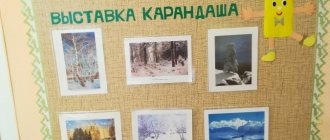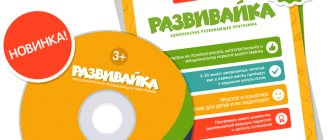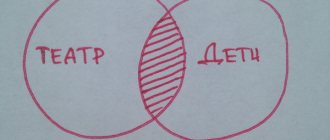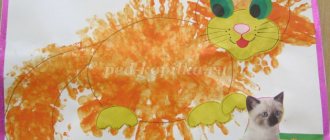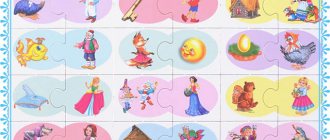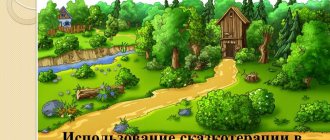Drama club program "Inspiration"
WORKING PROGRAMM
additional education
DRAMATIC CIRCLE
(artistic and aesthetic orientation)
"Inspiration"
| Compiled by: Dodonova I.I. teacher of Russian language and literature of the first qualification category |
2015
Explanatory note
The concept of a literary and dramatic circle is based on the fusion of two most important components of our art: theatrical activity and literature.
How to make the life of schoolchildren varied and exciting? How to introduce them to literature and creativity, instill a love for such ordinary school events? How to make school life a bright, unforgettable holiday in which both children and teachers will participate, both as actors and as spectators?
Such a means is the school literary and dramatic theater. Staging skits for specific school events, holding school literary evenings, staging scenarios for school holidays, theatrical performances of excerpts from fairy tales, episodes from literary works - all this is aimed at introducing children to theatrical art and literature.
Moving from simple to complex, children will be able to comprehend the fascinating science of theatrical skill and gain experience in public speaking and creative work. It is important that, while studying in a literary and dramatic circle, children learn to work collectively, work with a partner, learn to communicate with the audience, learn to work on the characters of the character, the motives of their actions, creatively refract the data of the text or script on stage, acquire the skills to critically evaluate as literary works as a whole, as well as individual literary characters. At literary evenings, children learn not only how to expressively read a text, but also how to work on lines that should be meaningful and heartfelt, create the character of a character as they see it, and gain experience in forming their own opinion about a particular literary work.
In addition, work on the design of performances, on scenery and costumes, and musical design is of great importance. This work also develops the imagination and creative activity of schoolchildren, and allows them to realize the possibilities of children in these areas of activity.
Goals and objectives:
1. Develop children's creative abilities.
2. Develop creative initiative and emotional responsiveness to artistic fiction.
3. Develop in children the skills to act logically on stage, purposefully revealing the content of the roles available to them in action and interaction with each other.
4. Develop the ability to use words, evoke a response from the viewer, and influence their emotional state.
5. Reveal the creative potential of children, give them the opportunity to realize these possibilities.
6. Develop a culture of speech, acquire skills of diction, facial expressions and plasticity.
7. To cultivate moral qualities in children: kindness, mercy, attention to people, their native land.
8. Cultivate observation, attention, imagination.
Organization of the activities of the literary drama club
The set goals and objectives will have to be achieved through the staging of theatrical performances for school students, the organization of school literary lounges, where poetry and prose of both famous authors and their own works will be read. The circle includes demonstration readings of the best school essays and their subsequent discussion, as well as the production of theatrical miniatures. Students of the circle will take an active part in organizing school-wide events. An important role is given to rehearsals, since it is during such activities that friendships and the ability to work in a team develop, as well as skills of mutual assistance, responsibility, attention, and the child’s creative potential is revealed.
Output results:
performing at school holidays, ceremonial and thematic assemblies, participating in school events, parent meetings, class hours, participating in junior school events, staging scenes from the life of the school and staging plays for free viewing, holding literary evenings.
Children should know and be able to:
know by heart and be able to read 5-10 tongue twisters correctly and expressively;
know 3-5 nursery rhymes and jokes, jokes, be able to play them out;
read poetry and fables expressively;
be able to imagine the character of the heroes of a poem, fable, and play up the content of the works;
be able to work in a team, with a partner, be able to behave on stage, be able to listen to comrades and defend your point of view on your stage character.
Program content
The club program is aimed at 5th grade students. and involves both working with the team as a whole and individual lessons during rehearsals. The program has two directions - literary and theatrical skills. As part of the first, literary evenings will be organized on the basis of the circle; within the second, theatrical performances are planned. Classes are held twice a week for 2 hours.
| №№ | Topic name | Number of hours |
| 1. | Introductory lesson. Familiarization with safety regulations. Acting | 1 |
| 2. | Conversation about theatrical art. The art of recitation. Expressiveness of reading. Diction. Orthoepy | 2 |
| 3. | Culture of behavior in the theater. Conversation. Theater ABC | 6 |
| 4. | Action as the main expressive means of acting | 2 |
| 5. | Types of theaters, their similarities and differences. | 6 |
| 6. | The role and tasks of the theater during the Great Patriotic War | 1 |
| 7. | Reading logic. Logical pauses | 10 |
| 8. | Rehearsals for performances and preparation for school holidays | 10 |
| 9. | Literary and musical composition | 10 |
| 10. | Participation in school events | 20 |
| 11. | Final lesson. Discussion of the work of the circle | 1 |
| Total: | 70 |
Calendar and thematic planning of the circle’s work
| № | date | Theme of the theoretical lesson | Practice | |
| plan | fact | |||
| 1 | Introductory lesson. Familiarization with safety regulations | Simple exercises and games. | ||
| 2-3 | “What is theater?” | Simple exercises and games. | ||
| 4-5 | The Word and the Modern Stage | Preparation for performance at the gathering (reception in October) | ||
| 6-7 | Games, exercises, sketches | Preparation for the school-wide event “Teacher’s Day” | ||
| 8-9 | "Teacher! Before your name..." | Rehearsal of skits for the holiday | ||
| 10-11 | Action as the main expressive means of acting | Reading poems by A. Barto, O. Vysotskaya in person, learning tongue twisters | ||
| 12-13 | The art of recitation. Diction. Orthoepy | Working on sketches | ||
| 14-15 | The art of recitation. Expressiveness of reading. | Reading material: fables, poems, skits | ||
| 16-17 | "Look into mom's eyes" | Preparation for the school-wide event "Mother's Day" | ||
| 18-19 | "Look into mom's eyes" | Preparation for the school-wide event "Mother's Day" | ||
| 20-21 | “Look into Mom’s eyes” Literary and musical composition | Speech at a school-wide event dedicated to Mother's Day | ||
| 22-23 | Working on the text. Reading by roles. Exercises | A joint selection of scenes for the New Year. | ||
| 24-25 | The art of recitation. Expressiveness of reading. | Reading material: fables, poems, skits | ||
| 26-27 | "New Year's Adventures" | Selection of skits, distribution of roles for the New Year | ||
| 28-29 | "New Year's Adventures" | Discussion of images, selection of costumes | ||
| 30-31 | "New Year's Adventures" | Rehearsal. | ||
| 32-33 | "New Year's Adventures" | Speech at a school-wide event dedicated to the New Year | ||
| 34-35 | Nativity | Christmas gatherings. Learning carols | ||
| 36-37 | Kolyada has arrived! | Christmas gatherings. | ||
| 38-39 | “He erected a monument to himself not made by hands...” | Preparation for a literary and musical composition dedicated to the memory of A.S. Pushkin | ||
| 40-41 | “He erected a monument to himself not made by hands...” | Preparation for a literary and musical composition dedicated to the memory of A.S. Pushkin | ||
| 42-43 | “He erected a monument to himself not made by hands...” | Performance. Literary and musical composition dedicated to the memory of A.S. Pushkin | ||
| 44-45 | "Women's Day March Eighth" | Preparation for the Eighth of March. Selection of poems, skits | ||
| 46-47 | "Women's Day March Eighth" | Rehearsal for the holiday | ||
| 48-49 | "Women's Day March Eighth" | Performance at the festival | ||
| 50-51 | The art of recitation. Expressiveness of reading. | Reading material: fables, poems, skits | ||
| 52-53 | Communication. Interaction. Sketches | Preparations for the Victory Day holiday." Selection of materials for the presentation, distribution of roles. | ||
| 54-55 | "Victory Day! How far he was from us..." | Rehearsal. Literary and musical composition dedicated to Victory Day | ||
| 56-57 | "Victory Day! How far he was from us..." | Speech at a rally dedicated to Victory Day | ||
| 58-60 | Verbal action. Exercises | Learning poems and fables | ||
| 61-62 | “Wonderful school years” | Rehearsal of mini-productions for “Last Call” | ||
| 63-64 | “Wonderful school years” | Rehearsal of mini-productions for “Last Call” | ||
| 65-69 | “Wonderful school years” | Participation in the Last Bell celebration | ||
| 70 | Final lesson. Summing up the work | Discussion of the work of the circle | ||
List of literature for students
Boguslavskaya N. E., Kunina N. A. Cheerful etiquette. - Ekaterinburg, 1997.
Gradova K.V. Theater costume. - M., 1987.
Kozlyaninova I. P. Pronunciation and diction. - M., 1997.
Mertsalova M.N. Costumes from different times and peoples. - M., 1981.
What is theater? A book for children and their parents. M., 1997.
List of literature for teachers
1. “The theater where children play.” Educational and methodological manual for directors of children's theater groups. Edited by A.B. Nikitina. M.: Vlados, 2001.
2. Avanesov R.I. Russian literary pronunciation. M.: Art, 1972.
3. Gradova K.V. Theater costume. - M., 1987.
4. Knebel M. O. Poetry of pedagogy. M., 1984.
5. Kolcheev Yu. V., Kolcheeva N. M. Theatrical games at school. M.: School press. – 2000.
6.. Programs of general education institutions. Theater. 1 - 11kl. M.: Enlightenment. 1995.
7. Lygina S.M. Plays for school theater. M.: Vlados, 2004.
Children's theater studio
The training program in the theater studio for children in groups from 7 to 10 years old, and from 10 to 14 years old, is not much different from the training program for adult actors in the studio at our theater or from the training program at higher theater schools. Training begins with exercises and training to remove external and internal pressures that arise in children when they need to go out in public and show or do something. An unprepared child will become tense: he will begin to grimace, or vice versa, numbness fetters the body, and thoughts begin to get confused. Preparation is so that children can be natural in public, be able to be in the right tone in given conditions, be able to set the tone for dialogue or support it, and be in its context.
When the first stage of training at a theater school for children has been mastered, a transition is made from single sketches to paired and group sketches, and training from the initial level moves on to more complex ones. At this stage, active work is underway to develop attention to the surrounding world: people and animals, plants, seasons, small details and much more. Children learn to see and hear each other by performing paired sketches without a known outcome. Work is done on internal and external sensations, memory of physical actions is developed, imaginative thinking and affective memory are developed. There is a transition to group exercises, when all partners in the team depend on each participant: tempo-rhythmic patterns, mirror, and other exercises. At the end of this stage, an open lesson is held for children in the acting studio based on the exercises being studied.
After mastering the basic principles of managing your acting apparatus, there is a smooth transition to new acting training exercises and the beginning of stage practice. At the stage of stage practice, children work within the framework of excerpts from works of Russian and foreign drama and classical literature. Children learn to be on stage not only themselves, but also in the role of another person that the playwrights offered us. The first year of study ends with the staging of a full-fledged performance on the stage of a large hall designed for 330 spectators. In the future, this performance can be performed repeatedly for the audience to gain the necessary experience for young actors in stage performances, and can also be taken to various children's theater competitions and festivals, both in Russia and abroad.
In the future, acting for children in the children's theater studio is carried out within the framework of the educational theater, where rehearsals of performances are carried out under the guidance of a director-teacher. Children continue to develop and maintain their acting apparatus in the right tone with the help of trainings. Optional disciplines are added for the development of stage expressiveness and acting skills: stage speech, stage movement, vocals, scenes. fight, etc.
If you have not yet decided where to send your child to study, come to a free trial lesson. We are confident that our theater school for children has the right to be considered one of the best in Moscow. This is evidenced by awards and jury reviews at Russian and international children's theater festivals and competitions.
Leave a request to attend a free class to reserve your place. The administrator will call you back to confirm the reservation and confirm the date.
